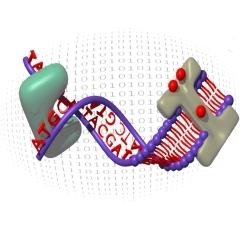
Protein Bioinformatics Research Group
@ProtBioinfRG
Followers
52
Following
314
Media
43
Statuses
288
Protein Bioinformatics Research Group at the Institute of Molecular Life Sciences, HUN-REN. #protein, #structure, #membrane, #database
Budapest, Hungary
Joined April 2016
Finally, our book chapter about detecting surface proteins has been published! Thanks to @CsabaMatta and the excellent research colleagues!.
link.springer.com
Cell surface proteins (CSPs) play a pivotal role in cellular processes and are crucial for differentiating various cell types. Despite the significance of the cell surface-localized proteomeProteom...
0
1
1
It was a great pleasure for me to be involved in the work led by @andrewfuredi by exploring the cell surface proteome of senescent cells. The results is here: #cancer #CancerResearch.
link.springer.com
Background Therapy-induced senescence (TIS) is considered a permanent cell cycle arrest following DNA-damaging treatments; however, its irreversibility has recently been challenged. Here, we demons...
1
0
1
I am thrilled to announce that our completely redesigned TmDet algorithm has just been published in @NAR_Open ! Simple, double, curved membrane or even erroneously modeled tm proteins are no problem!.
0
0
0
We are delighted that our article about the completely redesigned TmDet algorithm has just been accepted by the Nucleic Acids Research. Check it here:
0
0
0
And thanks to @PeTompa for his invaluable advice!.
0
0
0
Do you know how to use the AlphaFold predicted structures correctly for upstream predictions? If not, @dobsonlaszlo1 recent paper from our group in @BriefingBioinfo about BETA is for you.
1
0
1
RT @PDBeurope: 🚀 New in AlphaFold DB: Structural domains at a glance! 🔍✨. AFDB now integrates TED (The Encyclopedia of Domains) to classify….
0
58
0
MFIB2.0 has just been published in Nucleic Acids Research. Thanks for all authors @dobsonlaszlo1 , @e_ficho!
academic.oup.com
Abstract. While the majority of proteins with available structures are able to fold independently and mediate interactions only after acquiring their folde
0
1
2
The new TmDet server has been launched! It can determine the orientation of membrane proteins to the membrane, even in the case of double membranes or curved membranes, and can also detect errors in modeled transmembrane structures. Check it out in UniTmp:
0
0
0
RT @BiologyAIDaily: Regularly updated benchmark sets for statistically correct evaluations of AlphaFold applications. • This paper introduc….
0
4
0
RT @GabriCorso: Thrilled to announce Boltz-1, the first open-source and commercially available model to achieve AlphaFold3-level accuracy o….
0
418
0
RT @maxjaderberg: Excited to share that the AlphaFold 3 model code and weights are now available for academic use. Looking forward to seein….
github.com
AlphaFold 3 inference pipeline. Contribute to google-deepmind/alphafold3 development by creating an account on GitHub.
0
445
0
Fresh and crispy. Our paper on the MFIB database has just been published in the @NAR_Open Database issue.
academic.oup.com
Abstract. While the majority of proteins with available structures are able to fold independently and mediate interactions only after acquiring their folde
0
0
1
Our manuscript about MFIB 2.0 database has just been accepted in @NAR_Open . Thanks to all authors and anonymous reviewers and the executive editor @DanielRigden !.
MFIB 2.0 is out! The new database has almost tripled in size. New classifications, new features in the old, familiar environment. Check it here:
1
0
2
RT @unitmporg: 28 out of them are #membrane #protein. You can find their structures with membrane localization in the UniTmp database: htt….
pdbtm.unitmp.org
PDBTM database contains membrane orientation of transmembrane proteins
0
1
0
RT @unitmporg: PDBTM 20240830 release is out. 28 new #membrane #protein structures in the UniTmp database!. https:/….
0
2
0









